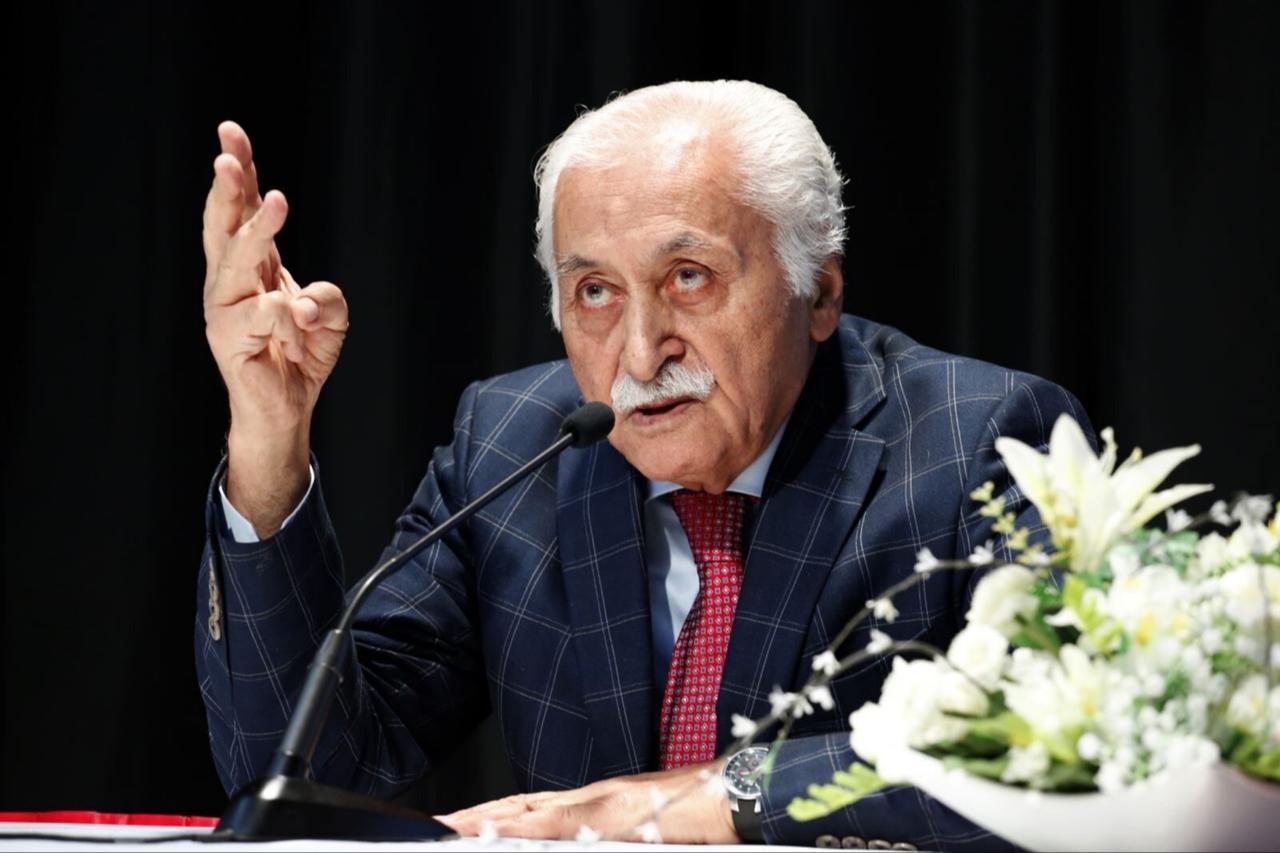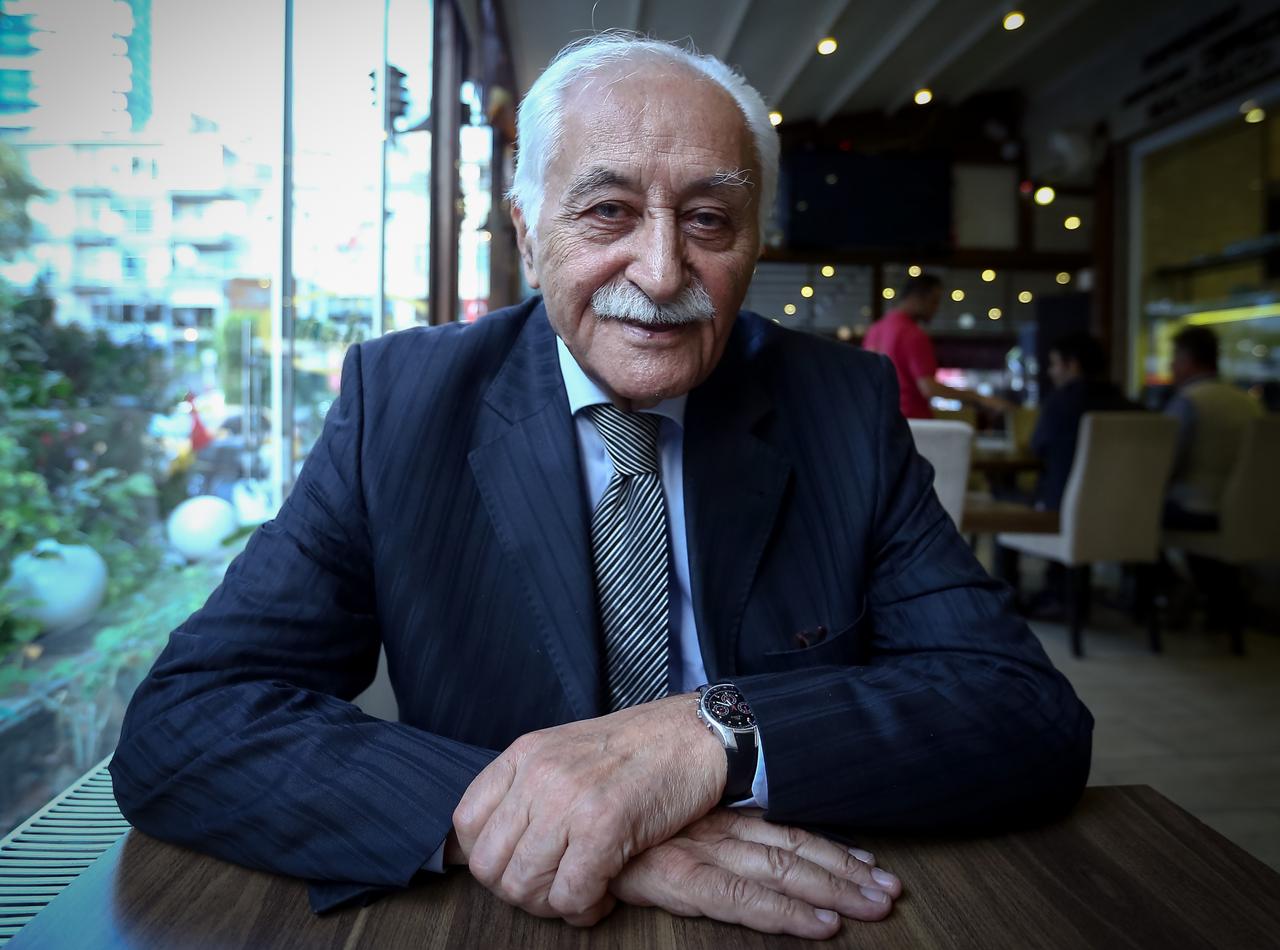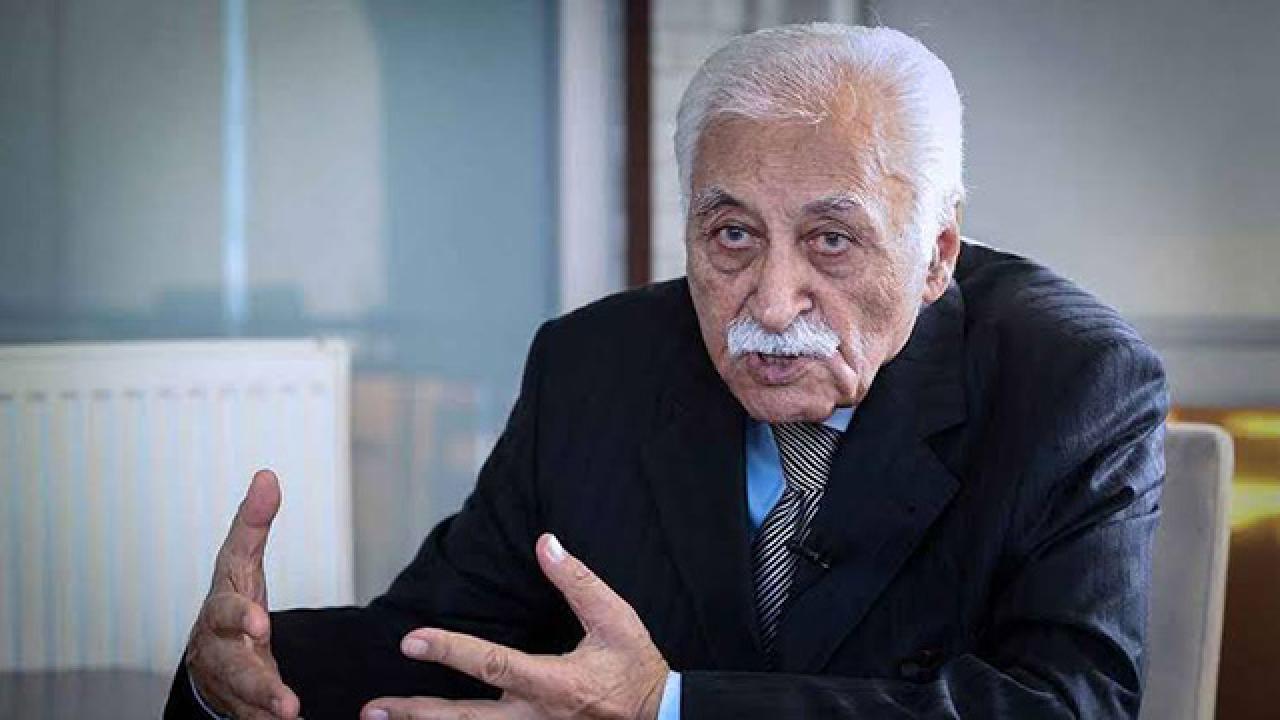
Yavuz Bulent Bakiler, one of the most prominent figures in modern Turkish literature, has died at the age of 89 while undergoing treatment at a hospital in Istanbul.
The news of his passing was shared by Istanbul Governor Davut Gul through a statement on his social media account on Sunday.
Bakiler had a long career as a journalist and columnist, writing for decades in Türkiye daily, where he became known for his sharp style and cultural reflections.
In his final column, he is said to have addressed readers with a farewell, asking for their forgiveness.
Known as the "strong voice of the Turkic world," Bakiler was a poet, essayist, and public intellectual who dedicated much of his life to the preservation and enrichment of the Turkish language and culture. His poetry was often cited by President Recep Tayyip Erdogan in public speeches.
Following the poet’s death, Erdogan expressed condolences, noting that Bakiler’s extensive body of work enriched the nation’s cultural heritage.
The Ministry of Culture and Tourism also issued a statement, describing Bakiler as one of the most influential literary figures of his generation, emphasizing that his works had left a lasting mark not only on Turkish literature but also on the intellectual and cultural life of the nation.

Bakiler was born on April 23, 1936, in the central Anatolian city of Sivas. He completed his primary and secondary education in Sivas, Gaziantep, and Malatya before graduating from Ankara University’s Faculty of Law in 1960.
Early in his career, he worked as a journalist at the Yeni Istanbul newspaper and later at the state broadcaster TRT Ankara Radio, where he prepared and presented cultural programs between 1964 and 1968.
He also practiced law in Sivas for several years before entering government service.
Bakiler held a range of public roles, including serving as a legal adviser at the Prime Ministry and as deputy undersecretary at the Ministry of Culture between 1979 and 1980.
He continued in advisory positions within the ministry until 1992 and retired in 1994.
Throughout these years, he remained active in journalism and literature, contributing thousands of articles and columns.
He also briefly entered politics as a candidate for parliament and mayor under the Justice Party, a center-right political movement active in Türkiye during the 1960s and 1970s.

A decisive shift in Bakiler’s career came through his connection with Enver Oren, the founder of Türkiye daily and TGRT television.
Bakiler recalled that his name first appeared in a major Istanbul newspaper thanks to Oren’s encouragement, marking a transition from regional and institutional roles in Ankara to a lasting national presence in Istanbul.
In personal recollections, Bakiler described how Oren persistently urged him to relocate to Istanbul, believing that his talents deserved a wider platform.
For years, Bakiler resisted, citing family responsibilities and financial difficulties. But Oren’s insistence, combined with his willingness to provide personal support, ultimately persuaded him.
Bakiler recounted that when he finally decided to move, Oren ensured he could establish himself by offering immediate financial assistance without asking for guarantees.
This gesture, which Bakiler described as an act of exceptional generosity, allowed him to purchase a home in Istanbul and settle permanently.
From that point onward, he became a central voice at Türkiye daily and appeared regularly on TGRT programs.
Bakiler later wrote that this transition reshaped his professional life, giving him both stability and visibility.
He credited Oren not only with helping him continue as a writer and cultural commentator but also with anchoring his career in Istanbul, where he produced much of his most enduring work.

Bakiler published extensively, producing poetry collections, travel writings, cultural essays, and memoirs.
His poems, marked by strong national themes and emotional intensity, include collections such as "Yalnizlik (Loneliness, 1962)," "Duvak (The Veil, 1971)," "Seninle (With You, 1986)," "Harman (The Harvest, 2003)," and "Bir Gun Baksam ki Gelmissin (One Day If I See You Have Come)."
His travel books, including "Uskup’ten Kosova’ya (From Skopje to Kosovo, 1979)" and "Turkistan Turkistan (1986)," documented his observations of cultural and historical ties across the broader Turkic world.
In addition to poetry and travel writing, he authored biographical and critical works such as Asik Veysel (1986), focusing on the life of the famed folk poet, and "Mehmet Akif’te Cagdas Turkiye Ideali (The Ideal of Modern Türkiye in Mehmet Akif, 1990)."
His memoirs, including "Unutamadiklarim (Those I Could Not Forget)," offered personal reflections on his life and encounters.
Throughout his career, Bakiler was honored for his contributions to literature and culture.
He was awarded the Presidential Culture and Arts Grand Award, one of the highest cultural distinctions in Türkiye.
President Erdogan, in his condolence message, expressed deep sorrow over his passing, saying that Bakiler had gifted the nation with "many poems, memoirs, travelogues, biographies and letters that will continue to inspire."
The Ministry of Culture and Tourism added that Bakiler would remain a lasting figure in the collective memory of the Turkish people.
Yavuz Bulent Bakiler leaves behind a rich literary and intellectual legacy that spans poetry, prose and journalism, ensuring his influence will endure across generations in Türkiye and the wider Turkic world.